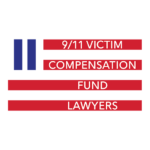The September 11th Victim Compensation Fund (VCF) process allows claimants to appeal a decision if they have been found ineligible to receive compensation from the VCF or if they believe the amount of the loss was incorrectly calculated. In order to successfully appeal a decision, claimants must understand the requirements and process for filing an appeal.
Filing an appeal vs. amending a claim
If a claimant is seeking a new determination based on new information that was not previously submitted with the claim, or if the claimant’s circumstances have changed since receiving the decision letter, he/she should not appeal but should instead amend the claim. This is an important distinction with significant consequences for the claimant. For more information about when to file an appeal vs. when to amend a claim, see the VCF’s guidance on When to Appeal vs. When to Amend.
Filing an appeal
When a claimant receives an eligibility denial letter or loss calculation decision letter, it will include an appeal form. To appeal the decision on a claim, the appeal form must be completed in its entirety and returned within 30 days of the date of the decision letter.
Claimants should note on the appeal request form any accommodations needed for the appeal hearing, such as the need for a phone or video conference or that the claimant will be bringing an interpreter.
If an appeal is timely filed, the VCF will schedule a hearing and then, approximately four weeks prior to the hearing date, will review the appeal request form and any documentation submitted in support of the appeal and will determine if the appeal appears to be valid. An appeal is considered valid if it is an attempt to challenge the determination already issued and if there is a reasonable basis for the challenge noted either on the appeal request form or in documents uploaded to the claim in support of the appeal. An appeal is considered not valid if it appears to be an attempt to seek a new determination on new information.
Hearings process
After receiving the completed appeal form, the VCF will send claimant a letter with an assigned hearing date and time and important details about the hearing. The hearing date and time cannot be changed except in rare circumstances. If the claimant misses the hearing, the appeal may be denied and the prior decision on the claim will be considered final.
Hearings are conducted by the Special Master or a Hearing Officer designee from her office. While hearings vary in length, they rarely last more than one hour.
At the hearing, claimants have a chance to present information or evidence that they believe is necessary to support their appeal. Claimants are allowed, but not required, to present witnesses, including expert witnesses. The Hearing Officers can examine the credentials of any experts who participate in a hearing. If a claimant is represented by an attorney, the attorney should attend the hearing with the claimant. Any individual who provides testimony at a hearing will be sworn in and will provide testimony under oath.
Please note that immigration status has no bearing on the hearing and undocumented individuals can attend a VCF hearing without risk of exposure.
After the hearing, claimants will receive a follow up letter explaining the decision on the appeal.
For more information about filing an appeal, refer to the VCF Policies and Procedures document or contact a qualified attorney.
It is not easy for people to appeal a decision of the VCF. The process of filing an appeal requires careful documentation. If you have questions about filing an appeal, contact Sullivan Papain Block McManus Coffinas & Cannavo PC at (800) 962-9954 or via our contact page.
Share On:

